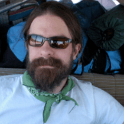
David Barbeau
Clastic sedimentology, tectonics and sedimentation, basin analysis, thermochronology, sediment provenance, and tectonics of the southern Andes and Antarctica.
Studies of modern and ancient climate change using a variety of biotic and geochemical proxies preserved in marine, lacustrine and terrestrial records. Also examination of the effects of climate change on biotic and abiotic systems, and human social adaptation to those disruptions. Faculty are actively involved in research on paleooceanography, paleoclimatology, and biological and societal responses to climate change in areas all around the globe.

Clastic sedimentology, tectonics and sedimentation, basin analysis, thermochronology, sediment provenance, and tectonics of the southern Andes and Antarctica.
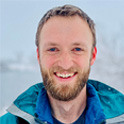
Our interdisciplinary hydrology lab integrates mechanistic and machine learning models with field observations, remote sensing, and community expertise to address pressing challenges in surface water systems. We are committed to co-produced and convergent research, ensuring that our science is rigorous, relevant, and responsive to community needs. By linking advanced modeling with real-world context, we generate actionable knowledge to support sustainable water management, strengthen climate resilience, and protect freshwater ecosystems.
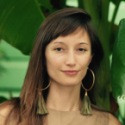
Monica Barra completed her Ph.D. in Cultural Anthropology from the Graduate Center at the City University of New York in 2018. Additionally, she holds a masters degree in American Studies from Rutgers University and a bachelors degree in Urban Studies and Literature from the Johnston Center for Integrative Studies at the University of Redlands. Monica joined the University of South Carolina in 2018 as an assistant professor in the area of Race and Environment at the School of the Earth, Ocean, and Environment with a joint appointment in the Department of Anthropology.
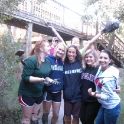
Biogeochemical cycling and export fluxes of nutrients. Global climate change in past and present day environments. Utilization of cosmogenic and uranium series radioisotopes to study ecological processes. Development of new analytical techniques.
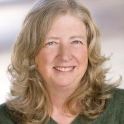
We focus on evolutionary, functional and behavioral ecology, with applications to conservation and environmental issues. The major question is how environmental change and variation affect life history traits, population structure and dynamics, and species interactions over ecological and evolutionary time. Environments vary on multiple spatial and temporal scales. Additionally, both the abiotic and biotic components of the environment may vary, for example in cases of species' invasions.
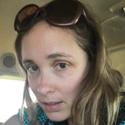
Marine biogeochemistry, Marine nitrogen cycle, Nitrogen and carbon stable isotopes, Molecular microbial ecology, Dissolved gases (N 2 , O 2 , Ar) as tracers of oceanic physical and biological processes, Trace gas production (N 2 O) in marine environments, Chemosynthetic deep-sea ecosystems, Oxygen minimum zones.
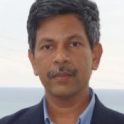
My research is in Remote Sensing, Satellite Oceanography, Physical Oceanography and Air-Sea Interaction. My research has focused on the use of Satellite Remote Sensing for studying ocean circulation utilizing both active microwave sensors (altimeters, scatterometers, imagers) and passive optical sensors (ocean color and sea-surface-temperature), as well as in the combination of passive/active (radiometer/radar) instruments.
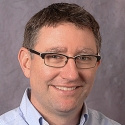
Dr. Fuente's research is situated at the intersection of infrastructure planning, environmental policy, and international development and focuses specifically on the provision of water and sanitaiton services in low- and middle-income countries. Trained as an environmental economist, urban planner, and environmental scientist, Dr. Fuente has conducted extensive fieldwork in East Africa (Kenya), the Middle East (Egypt), and South Asia (India). His research has been supported by the World Bank, USAID, the SIDA-funded Environment for Development Initiative, and the Global Development Network.
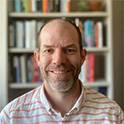
Dean holds his Ph.D. in Integrative Conservation and Geography, M.S. in Ecology, and B.S. in Marine Sciences. As a broadly trained geographer, he applies an integrative approach to work across multiple ways of knowing socio-environmental challenges. He draws on political ecology, hazards geography, environmental justice studies, and critical race theory to examine landscapes as socio-natural assemblages.
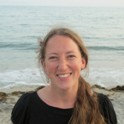
Marine ecosystems are heavily impacted by human activities, including climate change, fishing, offshore infrastructure, vessel traffic and pollution. Erin uses quantitative and computational tools to examine these influences on commercially valuable and at-risk species, including zooplankton, fish and marine mammals.
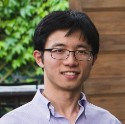
Microbes interact among themselves and with the physical world. They respond to environmental changes in ways that shape the physical world in turn. I develop, apply, and integrate novel methods in microbial ecology and geochemistry to study these intricate relationships found in marine environments.

Dr. Romero’s research focuses on uncovering geochemical signatures in the ocean as archives of how marine systems function and respond to natural and anthropogenic events. She uses organic chemistry and isotopic tracers in diverse samples from natural environments, and experiments to study the source, transformation processes, and fate of molecules in marine systems.
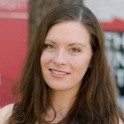
Dr. Ryker explores connections between reformed classroom practices, student learning, teaching beliefs and the implementation of inquiry-based labs in introductory geoscience lectures and labs. Her research interests also include online educational resources, professional development, and student learning strategies and engagement in large introductory courses. She is part of a team looking at the connection between teaching beliefs and practices for geoscience faculty members at a variety of institutions across the country.
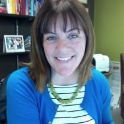
Bioavailability of Arctic soils, Biogeochemistry of darkening glacier surfaces, Environmental controls of hydrocarbon degradation